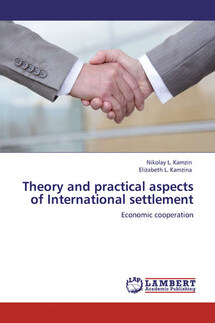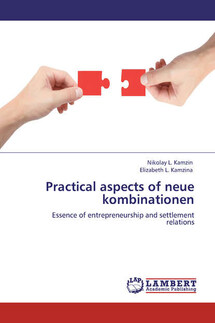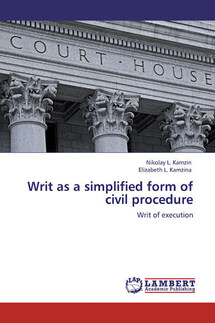Diffusion value of the pledge. Collector activity - страница 7
The most unfortunate sanction to the “evil” entity, its exclusion from the team, “ostracism”. Apply it can civil society by deciding not to join with "undesirable" in the subject of relationships, the decision will be known to all possible counterparts of collective solidarity and it will be done, but in a market economy, the pressures of this decision is the essence of the concept of “cause”. In the economic benefits of a separate entity because of “exiled” entity, assessing risks, it is able to change the collective interest. Under state regulation as public relations, there is an expansion team to the level of the whole society, and the sanction for violation of “rules of the game” lies in the law is inevitable, and very unfavorable for the “cause” of the economically active single entity, increasing its risk. Legal regulation provides for action in a particular area and number of persons universally rules of law that governs the actions of subjects, defined relationships, setting some boundaries within which the balance formed public relations.
1.3.Institutional affiliation of collateral relationship. Specificity of civil regulation
The question of the institute of law is a pledge (lien, the relationship) – of property or a debt, has a long history, and, of course, many have tried to resolve it[14].
Г. Дернбург, Г.Ф. Шершеневич, Ю. Барон, В.М. Будилов and other authors have assumed that the bail is extremely proprietary institution, an essential feature of which is the alienation and transfer of things with the emergence of a mortgagee the right to the mortgaged property. Proponents of a material nature of collateral generally acknowledge the existence of the Law of Obligations hell collateral, but indicate that only features in ram collateral account of its nature. The main arguments in favor of a material nature of collateral commonly referred to as: following the law of collateral pledged for, the absolute protection of the lien creditor against any person and the resolution of conflict on the basis of seniority of creditors. The jurisprudence confirms this position[15]. Other authors, such as Д.И. Мейер, Л.В. Гантовер, Л.А. Кассо, А.С. Звоницкий, С.И. Вильнянский and В.М. Хвостов, viewed as a pledge of obligations law institute. Proponents of obligations of the legal nature of collateral relied mainly on the following considerations: a pledge does not give her the subject of the possibility of prolonged direct exposure of the thing. The domination of the creditor over a thing does not even influence character: while the existence of the debt security leads to burdening things, payment of the debt burden is destroyed[16].
We cannot agree either with the advocates of a material nature of collateral, or the adherents of his Obligations of nature, since both of these positions greatly simplify the nature of the collateral by reducing it to the characteristics of complex formed in the civil law institutions.
At the present stage of development of knowledge about the relationship of collateral issue, the legal nature of the collateral remains open, what stresses existing interest in this institution and the relevance of research in this area. Besides the practical relevance of research collateral relationships exist scientific interest, as confirmed by carrying out research in this area, preparation of papers on related topics. Nature of mortgage is twofold, and it is characterized as proprietary, and as the Law of Obligations, the focus on this issue distracts the researcher from the spirit, which consists in the method of enforcement of obligations.









